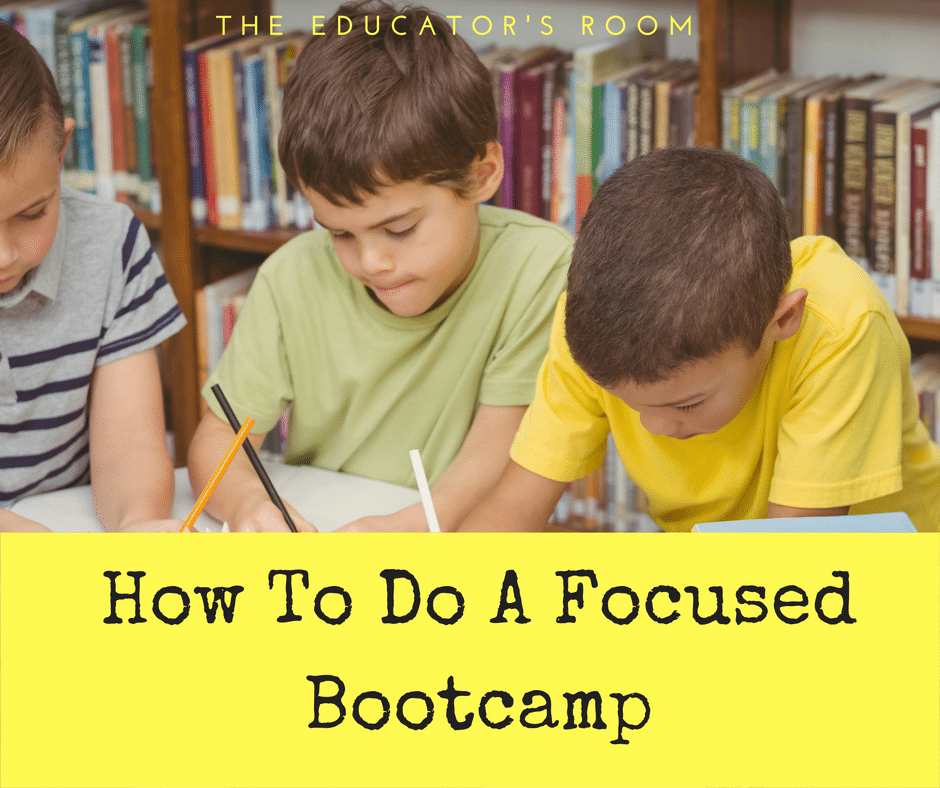Using the term “boot camp” to describe a teaching experience suggests something perhaps not so pleasant—what’s the classroom equivalent of crawling through mud under barbed wire? But teaching a focused bootcamp can be a lot of fun, and it’s actually a nice break from the norm. Students gain a great deal by an intense focus on difficult skills, and you will learn a lot about their strengths and weaknesses in a specific area.
I have used this format for working on AP essays, SAT essays, and personal essays, but I imagine that it could apply to lab reports, history essays, or any kind of challenging but important skill. Yes, it’s also a lot of work—for everyone. But by following a few suggestions, you can lessen the burden.
[fusion_builder_container hundred_percent=”yes” overflow=”visible”][fusion_builder_row][fusion_builder_column type=”1_1″ background_position=”left top” background_color=”” border_size=”” border_color=”” border_style=”solid” spacing=”yes” background_image=”” background_repeat=”no-repeat” padding=”” margin_top=”0px” margin_bottom=”0px” class=”” id=”” animation_type=”” animation_speed=”0.3″ animation_direction=”left” hide_on_mobile=”no” center_content=”no” min_height=”none”][bctt tweet=”teaching a focused bootcamp can be a lot of fun, and it’s actually a nice break from the norm” username=”EducatorsRoom”]
These are my tips for running a week-long bootcamp to focus on a specific skill without feeling like you’re going through basic training.
Spend the first day examining models as a class. This is not the time to rush through a lot of material. The point is to slowly take on a new skill together. Model a great deal yourself, showing students what they’ll be doing and how they’ll do it. This is also a good time to read some samples of what they’ll be writing and analyze those samples as a class. If you assign homework, have them try the first few steps on their own, but not the whole process yet. For example, you could give a list of prompts and have them brainstorm some responses without actually writing them.
Dedicate the second day to partner or group work. Give them some time to try things out with a partner, and check in with the groups throughout class. This is a chance for them to talk about what they might do, but not exactly complete a finished product yet. So they might brainstorm thesis statements for prompts or passages, or make an outline together. They will likely still be unsure about the whole process, so make sure you bring the class together at the end to discuss questions and findings.
On the third day, let them try it on their own. Give them a prompt or a passage or whatever it is that they will eventually be doing, and let see what they can do without the aid of you or another student. Again, you might just have them do the brainstorming or annotating or outlining step here. They might not even write anything yet. And make sure to convene again at the end of class so that they can check-in to see if they are getting what they should be getting.
On the fourth and fifth day, have them do it on their own, but only choose to grade. They could write one prompt for homework and do another in class, or you could spend a few days in class doing practice essays. Whatever you decide, you don’t have to grade it all. The point of the boot camp is for them to learn a new skill, not for you to give them praise on each and every step of the process. So give them some space to mess up a little, since that is really the only way that they’ll learn.
When you take the time to truly focus on an important skill, your students might feel like they have gone through basic training. But the experience will be a positive one for everyone.
At the very least, they’ll learn how dedicated you are to their education.

[/fusion_builder_column][/fusion_builder_row][/fusion_builder_container]





